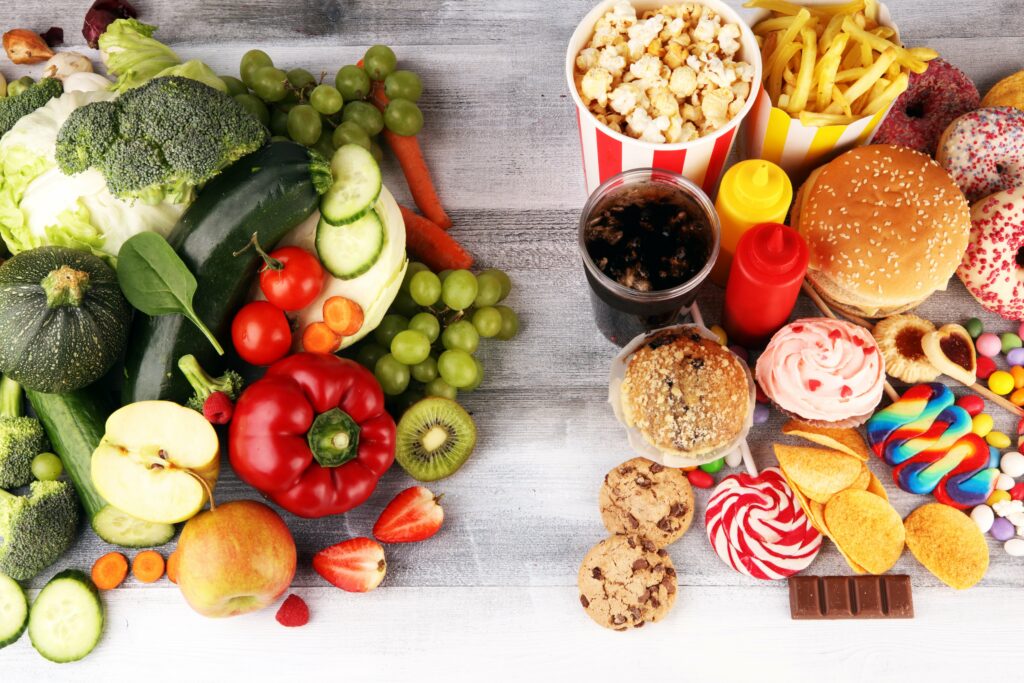Sugar is ubiquitous in the modern diet, often hidden in various foods and beverages that may not seem overtly sweet. Excessive sugar consumption has been linked to numerous health issues, including obesity, type 2 diabetes, heart disease, and dental decay. While it’s easy to recognize sugary treats like candy and soda, many other seemingly innocent foods and drinks contain significant amounts of added sugars. In this comprehensive guide, we’ll explore 17 foods and beverages that are surprisingly high in sugar, along with tips for reducing sugar intake and making healthier choices.
Flavored Yogurt
Flavored yogurt, especially those marketed as “fruit-flavored” or “dessert-style,” often contain substantial amounts of added sugars to enhance taste and palatability. Even seemingly healthy yogurt varieties can hide high sugar content, so it’s essential to check the nutrition label and opt for plain or Greek yogurt with no added sugars.
Granola Bars
Granola bars are often perceived as a convenient and wholesome snack option, but many commercial varieties are packed with added sugars to improve flavor and texture. To avoid excess sugar, look for granola bars with minimal added sugars and ingredients like nuts, seeds, and dried fruit for natural sweetness and nutritional value.
Bottled Smoothies
Bottled smoothies marketed as healthy and nutritious can be loaded with added sugars, fruit juices, and sweetened yogurt to enhance flavor. Making homemade smoothies with whole fruits, vegetables, and unsweetened ingredients is a better option for controlling sugar intake and maximizing nutritional benefits.
Fruit Juice
While fruit juice may seem like a healthy choice, it often contains as much sugar as soda due to the concentration of natural sugars from multiple fruits. Consuming whole fruits instead of fruit juice provides fiber, vitamins, and minerals while reducing sugar intake and promoting satiety.
Sports Drinks
Sports drinks are designed to replenish electrolytes and provide energy during physical activity but can be high in added sugars and calories. For hydration without excess sugar, opt for water or coconut water and save sports drinks for intense or prolonged exercise sessions when additional electrolytes are needed.
Canned Soup
Canned soups, particularly those labeled as “ready-to-eat” or “creamy,” often contain added sugars to enhance flavor and balance acidity. Choosing homemade or low-sodium canned soups with minimal added sugars is a healthier option for managing sugar intake while enjoying the convenience of canned foods.
Salad Dressings
Many store-bought salad dressings, especially creamy or sweet varieties, contain added sugars to improve taste and texture. Making homemade salad dressings with olive oil, vinegar, herbs, and spices allows you to control sugar content and avoid unnecessary additives.
Breakfast Cereals
Breakfast cereals marketed as healthy options can be deceptively high in added sugars, even those labeled as “whole grain” or “high fiber.” Choosing unsweetened or lightly sweetened cereals with whole grains and minimal additives is key to reducing sugar intake at breakfast.
Flavored Oatmeal
Flavored instant oatmeal packets often contain significant amounts of added sugars and artificial flavors to enhance taste and convenience. Opting for plain oatmeal and adding natural sweeteners like fresh fruit, cinnamon, or honey allows for better control of sugar content and customization of flavors.
Energy Bars
Energy bars marketed as quick snacks or meal replacements may contain high levels of added sugars, artificial sweeteners, and preservatives. Reading nutrition labels carefully and selecting bars with whole food ingredients and minimal added sugars is essential for making healthier choices.
Barbecue Sauce
Barbecue sauce is a common condiment used to add flavor to grilled meats and vegetables but can be surprisingly high in added sugars, especially when sweetened with molasses, honey, or high-fructose corn syrup. Choosing barbecue sauce with no added sugars or making homemade versions with natural sweeteners can help reduce sugar intake.
Fruit-Flavored Yogurt Drinks
Fruit-flavored yogurt drinks marketed as convenient snacks or breakfast options can contain excessive amounts of added sugars, artificial flavors, and preservatives. Opting for plain yogurt drinks or making homemade smoothies with fresh fruit and unsweetened yogurt is a healthier alternative.
Packaged Snack Foods
Packaged snack foods like cookies, crackers, and snack bars often contain hidden sugars, artificial sweeteners, and refined carbohydrates that contribute to cravings and overeating. Choosing whole food snacks like nuts, seeds, fruits, and vegetables helps avoid unnecessary sugar and promotes better satiety and nutrition.
Pre-Packaged Sauces and Condiments
Pre-packaged sauces and condiments, such as ketchup, sweet chili sauce, and teriyaki sauce, can be sources of hidden sugars and additives. Reading ingredient labels and choosing sauces with no added sugars or making homemade versions with natural ingredients is essential for reducing sugar intake.
Frozen Meals
Frozen meals marketed as convenient and time-saving options often contain added sugars, sodium, and preservatives to enhance flavor and shelf life. Making homemade meals with fresh, whole ingredients allows for better control of sugar content and overall nutritional quality.
Bottled Coffee Drinks
Bottled coffee drinks, including flavored lattes, iced coffees, and frappuccinos, can be loaded with added sugars, syrups, and whipped cream. Choosing plain coffee or espresso drinks with minimal added sweeteners or making homemade versions with unsweetened ingredients helps reduce sugar intake and unnecessary calories.
Alcohol Mixers
Alcoholic beverages mixed with sugary sodas, juices, or syrups can significantly increase sugar intake and contribute to weight gain and metabolic issues. Opting for lower-sugar mixers like soda water, lemon or lime juice, or choosing light beer and dry wines helps minimize sugar consumption while enjoying alcoholic drinks responsibly.
Reducing sugar intake and making healthier food and beverage choices is essential for promoting overall health and well-being. By being mindful of hidden sugars in everyday foods and drinks and opting for whole, minimally processed options, you can lower sugar consumption, improve energy levels, and reduce the risk of chronic diseases associated with excessive sugar intake. Experimenting with homemade recipes, reading nutrition labels, and prioritizing whole foods over processed options are key strategies for maintaining a balanced and nutritious diet that supports optimal health and longevity

